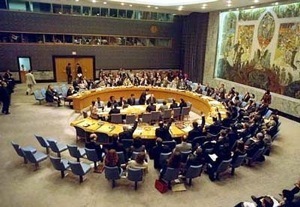J. Bradford DeLong's Blog, page 2179
October 11, 2010
links for 2010-10-11
Calculated Risk: Impact of estimated Benchmark Revision on Job Losses
The End of Free Trade? - WSJ.com
Balkinization
COGNITIVE SLAVES - Global Guerrillas
Orwell Watch: "Structural Unemployment" As Excuse to Do Nothing « naked capitalism
Balkinization
Obama era justice - Glenn Greenwald - Salon.com
Matthew Yglesias » Governing Better Would Have Helped Democrats
Young Frankenstein (1974) - Memorable quotes
Gillian Tett: Solving deleveraging puzzle will calm investors
Alan Rappeport: Summers calls for infrastructure spending



links for 2010-10-11
Calculated Risk: Impact of estimated Benchmark Revision on Job Losses
The End of Free Trade? - WSJ.com
Balkinization
COGNITIVE SLAVES - Global Guerrillas
Orwell Watch: "Structural Unemployment" As Excuse to Do Nothing « naked capitalism
Balkinization
Obama era justice - Glenn Greenwald - Salon.com
Matthew Yglesias » Governing Better Would Have Helped Democrats
Young Frankenstein (1974) - Memorable quotes
Gillian Tett: Solving deleveraging puzzle will calm investors
Alan Rappeport: Summers calls for infrastructure spending



links for 2010-10-11
Calculated Risk: Impact of estimated Benchmark Revision on Job Losses
The End of Free Trade? - WSJ.com
Balkinization
COGNITIVE SLAVES - Global Guerrillas
Orwell Watch: "Structural Unemployment" As Excuse to Do Nothing « naked capitalism
Balkinization
Obama era justice - Glenn Greenwald - Salon.com
Matthew Yglesias » Governing Better Would Have Helped Democrats
Young Frankenstein (1974) - Memorable quotes
Gillian Tett: Solving deleveraging puzzle will calm investors
Alan Rappeport: Summers calls for infrastructure spending



October 10, 2010
Liveblogging World War II: October 11, 1940
Liveblogging World War II: October 10, 1940
The British Middle Eastern Command reports on the situation in Egypt's Western Desert:
10th October 1940: The Italians consolidate in the Desert: It is now over three weeks since the Italian forces moved into Egyptian territory and advanced to Sidi Barrani. Since then there has been no further eastward movement except for the advance, and subsequent withdrawal, of a column of M.T. and tanks which was probably making a reconnaissance in force. Despite continued harassing by our aircraft, there has been considerable M.T. activity in the L. of C. area. The slowness of the advance indicates that Marshal Graziani is taking every step to bring up supplies and improve his communications. Further advance by the Italians would involve greater difficulties of supply, particularly of water, and the lengthened lines of communication will become increasingly vulnerable to our air and naval bombardment.



Cramdown and Foreclosure Fraud

Marcy Wheeler:
Remember Cramdown? | Emptywheel: Remember cramdown? It was a proposed change to bankruptcy law that would have allowed judges to modify the mortgages on primary homes for people entering bankruptcy.... Under the proposal, the banks would be allowed to work out their terms with borrowers first, before resorting to a bankruptcy judge. This is how it worked in the House version of cramdown, which passed in March 2009; the homeowner had to negotiate a voluntary loan mod with the lender before going to the bankruptcy judge. And this may have worked, but only because, for the servicers, cramdown would have loomed in the background as a big stick, forcing a negotiation with a level playing field for the borrower....
[C]ramdown... doesn’t show up in this WaPo story at all. The WaPo allows some anonymous administration officials to claim they couldn’t do anything about the abuses now being exposed in the foreclosure process because they wanted servicers’ voluntary help on modification programs (basically, the famously unsuccessful HAMP).
In an interview this week, a senior administration official confirmed that the White House and Treasury Department had received warnings that the mortgage industry employed inexperienced staffers to oversee foreclosures, had problems handling documents and communicating with borrowers, and often failed to comply with regulations. But... the official said... the administration was also seeking the servicers’ help with modifying the home loans of millions of borrowers to help them avoid foreclosure. In addition, a Treasury official said the federal government’s power to tackle problems in the servicer industry is limited because foreclosure law is largely the domain of states. Both officials, who were not authorized to speak on the record but were providing the administration’s views on the matter, said problems in the foreclosure process were largely the result of mortgage servicers being overwhelmed.
The massive foreclosure fraud that is about to seize up the economy again wasn’t the Administration’s fault, these anonymous sources want you to know, because they couldn’t do anything about it when they first got warning of it. Oh, and the servicers aren’t engaged in fraud, these anonymous sources want you to know, they’re just overwhelmed.... Key to this story of the Administration’s helplessness is the claim that the only tool they had to get servicers to modify loans was the servicers’ good will.... [T]hey had to let the servicers (who are also some of the biggest banks) engage in what amounts to fraud, because it was the only way they had to get servicers to participate in HAMP....
Back in July 2009, when the Administration was sitting on its hands as cramdown failed in the Senate and as Dick Durbin was observing that the banks own the Senate, the Treasury Department’s Assistant Secretary for Financial Stability, Herb Allison, testified to Congress that the Administration had all the tools it needed to slow the flood of foreclosures.
As housing foreclosures top the 1.5-million mark this year, the Obama administration has openly abandoned cramdown as a strategy for tackling the crisis. That approach — which would empower homeowners to avoid foreclosure through bankruptcy — was once a central element of the administration’s plans to stabilize the volatile housing market. Some financial analysts say the strategy would prevent 20 percent of all foreclosures. But, appearing before a Senate panel Thursday, two White House officials said that current policies are enough to address the problem. “We have enough tools,” Herbert Allison, the Treasury Department’s assistant secretary for financial stability, told members of the Senate Banking Committee. “The challenge is to roll them out.” The tools Allison invoked are several federal programs that offer financial incentives to mortgage lenders and servicers — the companies that buy the rights to manage loans — to modify the terms of mortgages in efforts to help homeowners escape foreclosure.
Fifteen months ago, according to the Assistant Treasury Secretary, the Administration had all the tools it needed. Now, as the problem of foreclosure fraud is about to explode, a Treasury official and a senior Administration official claim they didn’t have the right tools, they were helpless.... [A]fter fifteen months of trusting banksters to do the right thing for homeowners hasn’t worked out so well, the Administration is changing its story about whether it needed more tools to motivate those banksters.



in Which Brad DeLong Loses His Nerve...

A question I did not ask Condi Rice from the audience last night:
I am thinking about the post-Cold War foreign policy of the GHW Bush administration...
It was that the U.S. would bind itself to use its military to execute the will of the U.N. Security Council, so that no other potential power would think it cost-effective to build a military, and no smaller power would think nukes necessary to protect itself from the U.S. its highest priority. The hope was that that would preserve the U.S.'s status as the world's hyperpower for another generation or so.
We broke that. You broke that.
Now all of the BRIC powers think that a weaker, distracted, and more troubled America is in their interest. And people like George Shultz are very pessimistic about the non-proliferation outlook.
Is there a way to get back from where we are now to the foreign policy world we hoped to live in back in 1992?



Greg Mankiw Quits the New York Times?
An email from Mark Thoma saying that it sounds like Greg Mankiw is giving up his New York Times Economic View column because President Obama does not want to extend the temporary Bush tax cut on the marginal rates applied to high incomes.
It certainly sounds like it. The New York Times pays $650 a column and, Greg says, at anything less than the temporary Bush marginal rates on high incomes, that just is not enough:
Greg Mankiw:: AN important issue dividing the political parties is whether to raise taxes on those earning more than $250,000 a year. Democrats say these taxpayers can afford to chip in a bit more. Republicans say raising taxes on those who already face the highest marginal tax rates will hurt the economy. So I thought it might be useful to do a case study on one of these high-income taxpayers. Fortunately, I have one handy: me....
I can afford to pay more in taxes.... I have been very lucky.... I don’t have trouble making ends meet.... I am almost completely sated.... I don’t aspire for much more than a typical upper-middle-class lifestyle....
[B]ut I [do] hope to put some money aside for my three children. They will never lead lives of leisure, but I hope they won’t have to struggle to find down payments to buy their own homes or to send their kids to college. Suppose that some editor offered me $1,000 to write an article.... If I invested it in the stock of a company that earned, say, 8 percent a year on its capital, then 30 years from now... assuming that the Bush tax cuts expire, I would pay 39.6 percent in federal income taxes... the phaseout of deductions adds 1.2 percentage points... Medicare... 3.8 percent... 5.3 percent in state income taxes... the corporation in which I have invested pays a 35 percent corporate tax.... the estate tax.... Most likely... my kids will get... $1,000....
[W]ithout the tax increases advocated by the Obama administration... that writing assignment would yield my kids about $2,000....
Now you might not care if I supply less of my services to the marketplace — although, because you are reading this article, you are one of my customers. But I bet there are some high-income taxpayers whose services you enjoy.... Like me, these individuals respond to incentives. (Indeed, some studies report that high-income taxpayers are particularly responsive to taxes.) As they face higher tax rates, their services will be in shorter supply...
I think that this is a big mistake for two reasons: one moral-political and one economic-analytical.
Let me deal with the economic-analytical reason first:
First, start with the fact that tax on Greg's current writing earnings because he wants to leave more to his children in thirty years will be higher than today's current Bush-era tax rates. But they will not be higher because of anything Barack Obama has done or failed to do. They will be higher for three reasons. First, George W. Bush and his advisors--of whom Greg Mankiw was one--failed to find any spending offsets in order to pay for the temporary Bush reductions in tax rates. Second, George W. Bush and his advisors--of whom Greg Mankiw was one--enacted a very large long-term spending increase without figuring out any way to pay for it: Medicare Part D. Third, George W. Bush and his advisors--of whom Greg Mankiw was one--enacted a second very large spending increase when they responded to Al Qaeda by greatly increasing the size of a conventional military which is of not much use in our current struggle, and also did so without figuring out any way to pay for it.
As Milton Friedman liked to say, and as he did say when he--I am told--yelled at George W. Bush during his 90th birthday celebration at the White House--to spend is to tax. Will the spending, and you will the taxes. If somebody claims to have cut your taxes without cutting spending, do not believe them: all they have done is to shift taxes forward into the future, and made taxes on current consumption lower while making taxes on long-term transfers of wealth into the future higher.
The sooner taxes are raised in order to pay for Medicare Part D, the expanded U.S. military, other pieces of Medicare and Medicaid spending growth, and to offset the revenue lost over the past decade of the Bush temporary tax cuts, the lower the taxes on Greg's saving for his children's inheritance will be. That Barack Obama is taking some steps to restore fiscal sanity should diminish his view of the risk-adjusted taxes his long-run savings will pay, and make him more willing to write for the New York Times--not less.
But there is more. The two biggest long-run policies that Barack Obama has set in motion over the past two years have been (a) the entrenchment of future reductions in Medicare spending growth designed by the Independent Payment Authorization Board so that they can only be overturned by affirmative congressional supermajority votes to prevent them, and (b) the enactment of a growing and eventually very large tax on high-cost health-insurance plans. Now these policy changes may not survive--the Republicans are pledged, to a sophont, to repeal both of them. But if they do they greatly reduce the amount by which income and other taxes must rise over the next generation. And so they make the expected taxes on Greg's saving-for-his-children's-inheritance significantly lower.
If Greg wrote one column a month before Obama took these big steps to restore long-run fiscal balance to the U.S. federal government, the prospect of lower tax rates on his saving-for-his-children's-inheritance should induce him to write three columns a month now.
Second, Greg says that it's worth it for him to write columns if they generate $2000 in net bequeathed wealth in 2040 but not if they generate $1,000. But that shouldn't be why anybody writes columns. Indeed, if people write columns not because they are driven to inform and educate their readers but rather because it is a way to make money to leave to their children--well, then those columns will be written not to inform but to entertain, and so they will be worthless as sources of information and education (rather than as sheer entertainment) to their readers.
I do not think society can survive if the voices writing on political-economic issues in our public sphere are doing so not to inform but merely to entertain. I think that society can only survive if those who write columns are driven by a geas to make Americans better-educated citizens but rather to leave more wealth to your children. We ought to write columns not because we think our children will need extra money in thirty years, but because we think our fellow-citizens need better information now.
Indeed, I don't think America can long survive if we treat our contracts with newspapers merely as ones in which we craft words qnd they pay us money, and in which we craft our words to make as much money as we can.
Edmund Burke, I think, put it best when he said that society can only survive if at the very least it is a long-term partnership, and ought to have much more of social gift-exchange than that. As Burke wrote, we ought not to speak of a "social contract" in which each narrowly counts their contributions and benefits. And if we do speak of a "social contract," we must recognize that that is far from being a complete description:
Subordinate contracts for objects of mere occasional interest may be dissolved at pleasure; but the state ought not to be considered as nothing better than a partnership agreement in a trade of pepper and coffee, calico or tobacco, or some other such low concern, to be taken up for a little temporary interest, and to be dissolved by the fancy of the parties. It is to be looked on with other reverence; because it is not a partnership in things subservient only to the gross animal existence of a temporary and perishable nature. It is a partnership in all science, a partnership in all art, a partnership in every virtue and in all perfection. As the ends of such a partnership cannot be obtained in many generations, it becomes a partnership not only between those who are living, but between those who are living, those who are dead, and those who are to be born. Each contract of each particular state is but a clause in the great primeval contract of eternal society, linking the lower with the higher natures, connecting the visible and invisible world, according to a fixed compact sanctioned by the inviolable oath which holds all physical and all moral natures each in their appointed place...



links for 2010-10-10
Balkinization
COGNITIVE SLAVES - Global Guerrillas
Orwell Watch: "Structural Unemployment" As Excuse to Do Nothing « naked capitalism
Balkinization
Obama era justice - Glenn Greenwald - Salon.com
Matthew Yglesias » Governing Better Would Have Helped Democrats
Young Frankenstein (1974) - Memorable quotes
Gillian Tett: Solving deleveraging puzzle will calm investors
Alan Rappeport: Summers calls for infrastructure spending



J. Bradford DeLong's Blog
- J. Bradford DeLong's profile
- 90 followers






